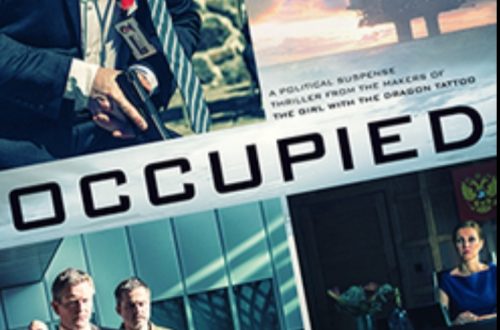This is a guest post by Chas Newkey-Burden
I’ve long admired Alan Dershowitz. I remember reading his superb book The Case For Israel, cover to cover, during a red-eye flight back to Britain from New York City. It was a key moment in turning me further away from the widespread default position of liberal British gentiles: a well-meant but ill-informed, lazily arrived-at, loosely pro-Palestinian position. It’s a fantastic book that has made Dershowitz a hero to the brilliant and a feared hate-figure to the bigoted.
Dershowitz has since published other works, including The Case For Peace and The Case Against Israel’s Critics. Both are excellent, as is his older book Why Terrorism Works. This brilliant man has now made a film called The Case For Israel – Democracy’s Outpost. I encourage you to watch it, either in cinemas if you have the opportunity or otherwise on DVD. During its 77 minutes you will be treated to a clear-eyed, straightforward but heroic defence of this brilliant nation.
The film is a combination of footage of Dershowitz’s contributions to lectures and debates, archive news footage and interviews with numerous politicians, military men and other experts. He puts Israel’s case powerfully, reminding viewers that the Palestinians were offered – and rejected – a state in 1937, 1948, 1967 and 2000. (They have done so again since the film was made.) He shows how the Arab states and not Israel created the Palestinian refugee problem. He demonstrates how the security fence spectacularly reduced the rate of suicide bombings.
He is concise, eloquent and right. “Israel should not compromise at all on checkpoints,” he says. “Checkpoints have been extraordinarily effective: 10,000 terrorist acts have been prevented by checkpoints. Given a choice between waiting an hour and uncomfortableness, and having people go into downtown Tel Aviv to blow up buses, I have to tell you if I was an Israeli, a Palestinian or someone from Mars, I would much prefer the checkpoints. The checkpoints will disappear when terrorism disappears.”
He has always been a formidable destroyer of the hypocrisy and dishonesty of Israel’s worst critics. High on this list is, of course, former US President Jimmy “I’m going to f**k the Jews” Carter. Despite Carter’s boast that he wrote his lie-ridden book Palestine: Peace Not Apartheid to “start a debate”, he outright refused to debate it with Dershowitz and insisted they appear separately at a university event.
It’s funny watching Carter lord it on stage at the event, while Dershowitz is forced to twiddle his thumbs backstage thanks to Carter’s cowardice. No wonder the former President is so scared: he has consistently refused to respond to Dershowitz’s allegation that he advised Yasser Arafat to turn down Ehud Barak’s extraordinary Camp David offer and therefore has the “blood on his hands” of 4,000 Palestinians and 1,000 Israelis.
As the film shows, both Dennis Ross (Middle East negotiator) and Kenneth Stein (former fellow of the Carter Center) fundamentally dispute the record of key meetings Carter produced in his book. Indeed, Stein even resigned from the Carter Center, so at odds were Carter’s claims about meetings which Stein not only attended but took notes from. (The book The Case Against Israel’s Critics offers a fulsome demolition of Carter’s lies.)
Back on screen, Dershowitz is superb. “There is apartheid in the Middle East,” he says in response to the apartheid allegation made by Carter and others. “In Saudi Arabia there is gender apartheid, religious apartheid, all kinds of apartheid. But in Israel? Where Arabs serve in the Knesset, on the Supreme Court and at universities, where affirmative action is part of government policy?” He’s right and it is the ultimate irony that so many liberal/left Westerners attack the state that reflects their key values and tacitly support those regimes that promote the opposite.
Dershowitz’s interviewees are just as impressive. One points out that Jerusalem is mentioned 667 times in the Bible but not once by name in the Koran. But most powerful is the Commander in Chief of the Israeli Air Force, who quietly shows the extraordinary morality shown by the Israeli military in the face of the unimaginable dilemma that its enemies sickening human shield tactic creates. As Dershowitz comments: Hamas attacks in this way to take advantage of Israel’s higher sense of morality.
Turning to the UN, he reveals that there have been more resolutions against Israel than the rest of the world combined. “If a space alien landed in Turtle Bay and took a look at the UN, it would say: ‘What a wonderful world this is! There’s this great place called Syria which heads the Security Council, and this marvelous place called Libya that heads the Human Rights Council. Then there is this dark, pariah state called Israel that commits all the human rights violations in the world.’”
It’s powerful stuff and – however well-informed you are on the conflict – I urge you to watch it. More than that, please encourage others to. I don’t particularly approve of films like Fahrenheit 9/11 and An Inconvenient Truth, nor am I directly comparing The Case For Israel with them. But we’ve seen the massive influence they have had on the public. To convince a friend to read a book about the conflict is difficult, but to get them to watch a relatively short film is an easier prospect. We’re facing a wall of ignorance and misconceptions: Dershowitz’s brilliant, award-winning film can begin to knock it down. But only if we do our bit and encourage as many as possible to watch it.
You can order it from the Zionist Federation.


